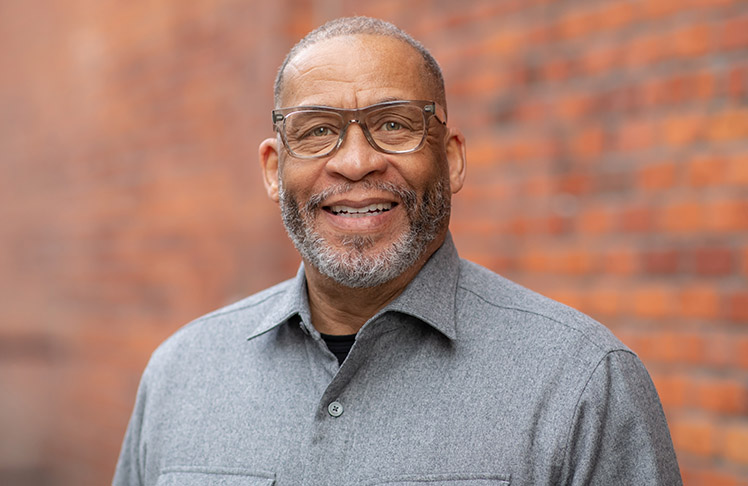
By Cynthia Flash, Special to The Seattle Medium
Willie Parish, Jr. doesn’t let the hours he spends on kidney dialysis each week slow him down. Even though he is tethered to the dialysis machine for four hours a day, three days a week, he leads a very full life as the head of Bread of Life Mission in Seattle’s Pioneer Square and spends as much time as possible with his four grandkids.
“I’m very transparent (about dialysis,)” says Parish. “I was on dialysis three months before I told my board and my team. It was important for them to know. I welcome the prayers. They fully support me.”
Parish said his faith – and his desire to keep moving – keep him healthy.
“As long as I’m moving, I’m fine,” he said. “As long as I’m still I want to continue to be still. If I go home and sit down, I shut down. If I can keep myself in motion, I do really, really well.”
When he’s not helping vulnerable adults who face homelessness, addiction and other challenges as president of Bread of Life Mission, Parish and his wife Sherill of 43 years enjoy activities with their four (soon to be five) grandchildren, ages 2 to 15.
Parish’s kidneys started giving him trouble in the late 1980s. He blames his kidney disease on drug use earlier in his life. Although he kicked the drugs, he wasn’t able to fix his kidneys. Four years ago, they had deteriorated to the point where they could no longer cleanse the waste and water from his body, so he turned to dialysis to sustain his life. Three days a week he heads from his home in Auburn over to Northwest Kidney Centers’ dialysis clinic in Burien. He gets hooked to the dialysis machine, and waits while the machine cycles his blood to remove waste and water from his body – replacing the important work that healthy kidneys perform in people without kidney disease.
Even as he accepts dialysis treatment, Parish soon will be added to the kidney transplant list.
“I’m very grateful to the leadership and team of Northwest Kidney Centers who have provided for me and others the opportunity to receive first-class treatment while demonstrating professional and compassionate care,” Parish said. “This has been my lifeline while I look forward to a kidney transplant, which will give me a better quality of life.”
This time of year is especially important to Parish because March is National Kidney Month. Fifteen percent of Americans have chronic kidney disease, and the vast majority, 90 percent, don’t know it because kidney damage usually occurs without symptoms.
Diabetes and high blood pressure are the two leading causes of kidney disease. Other risk factors include heart disease, smoking and family history of kidney disease. African Americans, people who are overweight, and those over age 60 are also at risk. African Americans suffer from kidney failure at three times the rate as Caucasians. Diabetes is the leading cause of kidney failure in African Americans with approximately 4.9 million African Americans over age 20 living with diagnosed or undiagnosed diabetes.
“People with a risk factor for kidney disease should have their doctors check their blood pressure and do appropriate lab tests, such as possible blood and urine tests to check their kidney health,” said Dr. Suzanne Watnick, chief medical officer at Northwest Kidney Centers.
“The advice that works for heart health is also good for kidney health: eat a healthy diet, be active for 30 minutes five days a week and don’t put harmful things into your body. All of us should minimize the salt we eat by cutting back on fast food and processed foods. And know that long-term use of drugstore nonsteroidal anti-inflammatory drugs (NSAID) pain relievers such as ibuprofen and naproxen, with brand names such as Aleve and Advil, can be hard on kidneys,” Watnick said.
Find more information about kidney disease prevention and treatment at www.nwkidney.org. You can also find out if you are at risk by taking a quiz at www.nwkidney.org/quiz.















